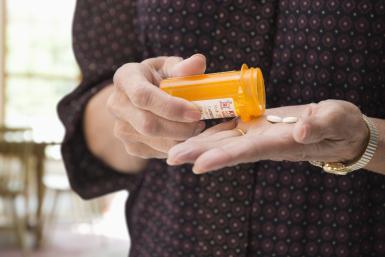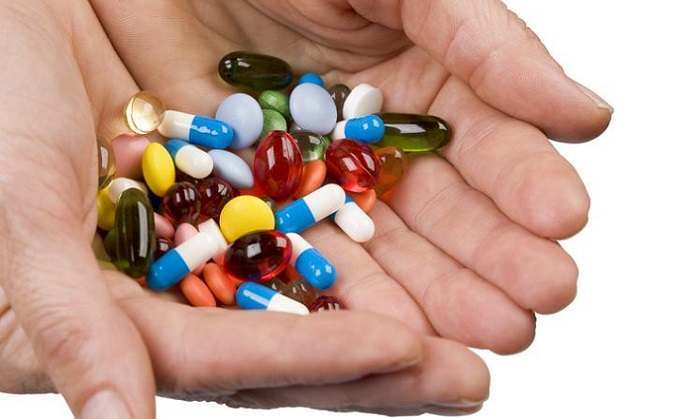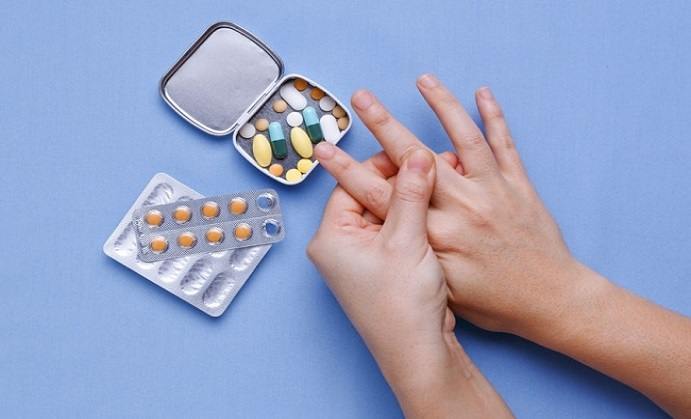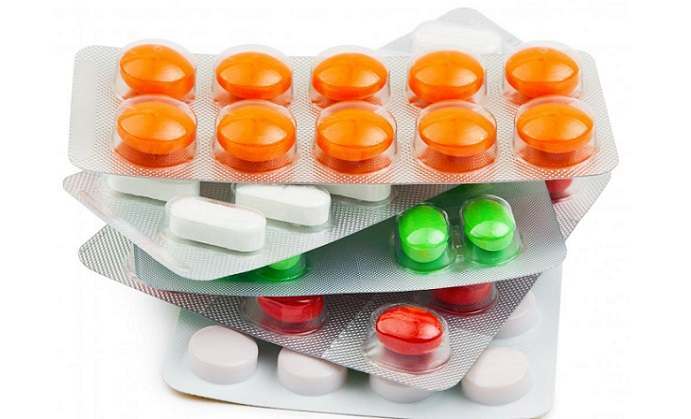Gout has no actual treatment. If you suffer from gout, you can only find methods of relieving pain and managing the flares as quickly as possible. If you follow the correct medication, you can minimize the possibility of future attacks.
Medicating Gout
The first gout flares are usually severely painful, and doctors will often recommend anti-inflammatory drugs to control the pain and inflammation. The most common are non-steroidal anti-inflammatory medications (NSAIDS). NSAIDS act fast and can help your joints to recover in a matter of days. You need to start the medication immediately after you experience the attack.
 Extreme gout attacks cannot be managed using NSAIDS. In that case, doctors prescribe corticosteroids such as prednisone. There are injectable forms of corticosteroids that can be directly put into the affected joints. Corticosteroids have adverse side effects, thus, physicians only use them as a remedy of last resort.
Extreme gout attacks cannot be managed using NSAIDS. In that case, doctors prescribe corticosteroids such as prednisone. There are injectable forms of corticosteroids that can be directly put into the affected joints. Corticosteroids have adverse side effects, thus, physicians only use them as a remedy of last resort.
Colchicine is also a common alternative that is administered orally or by use of an IV in case of severe flares.
Diarrhea usually occurs as a side effect of taking colchicine. Most people suffering from gout cannot withstand colchicine medication for an extended period unless it is administered in low doses. Typically, the doctor will begin with a high dose and then reduce gradually over time, finally stopping the treatment after symptoms subside. Colchicine works best during the initial 12 hours after the onset of an attack.
Preventing future gout attacks includes a combination of lifestyle and dietary changes, colchicine, or NSAIDS. If these are not effective, allopurinol (Zyloprim) or probenecid are used to flush out excess levels of uric acid.
Newer Generation Medication for Gout
 Febuxostat (Uloric) – This medication is used to lower levels of uric acid to guard the body against future flares. It is not used to treat an ongoing gout attack.
Febuxostat (Uloric) – This medication is used to lower levels of uric acid to guard the body against future flares. It is not used to treat an ongoing gout attack.- Hyzaar or Losartan (Cozaar) – Losartan is a medication for blood pressure that can also be used to reduce levels of uric acid. It lowers blood pressure and thus is used only when other drugs fail. It is not very efficient in reducing the amount of uric acid as compared to other medications.
- Fenofibrate (Tricor) – This medication is used for cholesterol but can also help to reduce uric acid levels. It reacts to colchicine and thus the two drugs cannot be administered together. It also has adverse side effects.
- Pegloticase (Krystexxa) – This is a new medication for gout that received FDA approval in 2010. It is the first medication to be approved for the treatment of reoccurring and chronic gout. It is administered through IV infusions that introduce a certain enzyme that changes how the body deals with levels of uric acid. This allows the body to flush out uric acid and helps in the subsequent management of the levels of uric acid. The known side effects so far include infusion reactions and allergic reactions. More side effects may be reported with the continued presence of the medication in the market and the collection of post-marketing data.
Alternative Remedies for Gout
 There are natural remedies that help to prevent the buildup of uric acid in the body and also aid the kidney to excrete excess amounts. They are useful in keeping the kidneys and liver healthy in order to deal with toxins intruding the body. Some alternatives include:
There are natural remedies that help to prevent the buildup of uric acid in the body and also aid the kidney to excrete excess amounts. They are useful in keeping the kidneys and liver healthy in order to deal with toxins intruding the body. Some alternatives include:
- Water – Taking lots of water helps to dilute the uric acid in the body as well as helping the kidneys to expel excess amounts. Take between 10 and 12 glasses daily. Dehydration limits the functionality of the kidneys and may lead to a rise in the levels of uric acid. Spring water contains valuable minerals that aid in balancing pH levels in the body.
- Take less meat – Reduce or avoid taking high purine meats. Purine digestion is the leading cause of rises in uric acid in the bloodstream. Try to adopt a vegetarian diet if possible, otherwise, limit your consumption of legumes, gravies, sardines, organ meats, and red meat.
- Fruits – Cherries provide a naturally proven anti-inflammatory remedy. They reduce the pain and swelling caused by gout. Take a lot of berries and fruits rich in vitamin C to help the body in breaking down excess uric acid. Take a lot of black cherry juice which is a known effective remedy for relieving gout symptoms.
- Avoid alcohol – Alcoholic drinks, especially beer, raise uric acid amounts in the blood. If you must take a beer, you can tolerate up to 5 ounces in a sitting.
- Shed off excess weight – Cutting off weight reduces the risk of acquiring gout and also lowers the strain on the body during a flare. Being overweight lowers the body control in combating uric acid and also adds to the pressure on joints. Cut off the weight gradually because losing weight too quick may lead to an increase instead of a decrease of uric acid.
You should visit your doctor the earliest possible to get diagnosed. Discuss with the physician about the available alternatives and the best option to use. Using a mixture of the above remedies may be appropriate.
Do you want to find an effective Gout treatment? Check out our top rated Gout products











